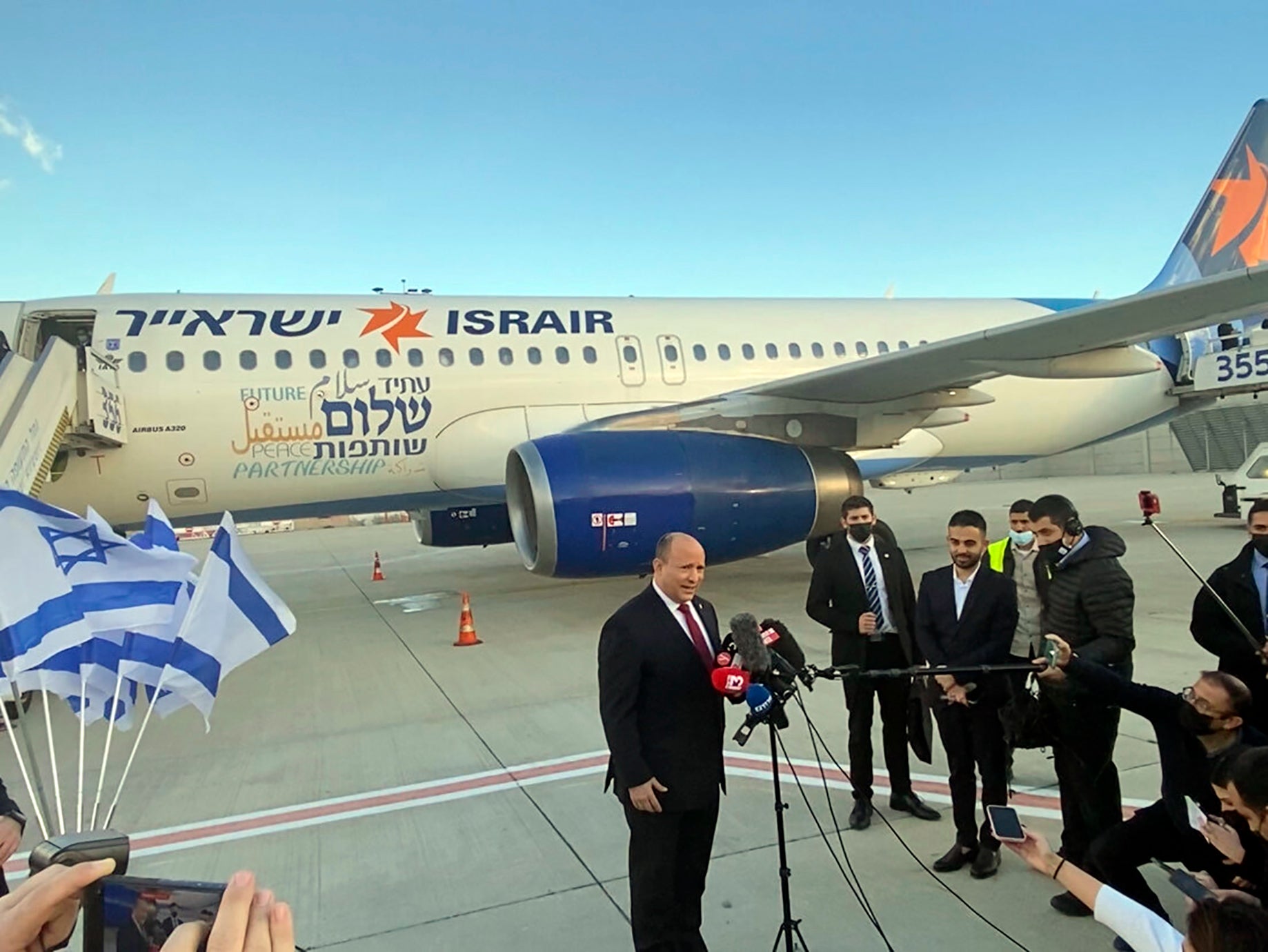As Iran talks stall, Israeli PM makes snap trip to Bahrain
Israeli Prime Minister Naftali Bennett is flying to the Gulf state of Bahrain

Your support helps us to tell the story
From reproductive rights to climate change to Big Tech, The Independent is on the ground when the story is developing. Whether it's investigating the financials of Elon Musk's pro-Trump PAC or producing our latest documentary, 'The A Word', which shines a light on the American women fighting for reproductive rights, we know how important it is to parse out the facts from the messaging.
At such a critical moment in US history, we need reporters on the ground. Your donation allows us to keep sending journalists to speak to both sides of the story.
The Independent is trusted by Americans across the entire political spectrum. And unlike many other quality news outlets, we choose not to lock Americans out of our reporting and analysis with paywalls. We believe quality journalism should be available to everyone, paid for by those who can afford it.
Your support makes all the difference.Israeli Prime Minister Naftali Bennett traveled to the Gulf state of Bahrain on Monday, cementing ties between the new allies in a clear message of cooperation aimed at regional archrival Iran.
Bennett's trip to the Gulf is the first public visit by an Israeli prime minister to Bahrain and comes less than two weeks after the countries signed a defense agreement with an eye on rising tensions in the Gulf. The visit also comes as nuclear talks between world powers and Iran are dragging on in Vienna.
Israel and Bahrain agreed to normalize ties in 2020 as part of the U.S.-brokered “Abraham Accords,” which also saw Israel establish relations with the United Arab Emirates, Morocco and Sudan. Bennett traveled to the UAE late last year.
Speaking to reporters before taking off, Bennett said he would meet with Bahrain's king, crown prince and others “to fill with energy and content the peace agreements between the two nations.”
"I think especially in these tumultuous times, it is important that from this region we send the message of good will, of cooperation, of standing together against common challenges and of building bridges to the future,” he said.
Overshadowing Bennett's trip to Bahrain are rising regional tensions. The U.S. and Israel have accused Iran of attacking commercial shipping in the Gulf, and Iran-backed Houthi rebels in Yemen have recently launched missile strikes against the UAE. Israel has stepped up its naval presence in the Red Sea, a critical artery for world trade and Israeli strategic interests.
Israel, along with its new Gulf allies, is watching closely as diplomats from the United Kingdom, Germany, France, China and Russia are currently negotiating with Iran in the Austrian capital over its nuclear program. American diplomats are indirectly involved in the talks.
The Vienna negotiations are working to revive the 2015 nuclear accord between Iran and six world powers. That agreement, launched by President Barack Obama, granted Iran relief from stifling sanctions in exchange for curbs on its nuclear program.
But three years later, President Donald Trump, with strong encouragement from then-Israeli Prime Minister Benjamin Netanyahu, withdrew from the deal, causing it to unravel. Since then, the U.S. has reimposed sanctions and Iran has stepped up its nuclear activities — amassing a stockpile of highly enriched uranium that goes well beyond the bounds of the accord.
Israel has said it will not be bound by any international agreement concerning Iran’s nuclear program, and says it is prepared to take military action if needed to prevent Iran from obtaining nuclear arms. Iran insists its nuclear program is solely for peaceful purposes.
Bahrain and the UAE have long nurtured clandestine security cooperation with Israel over their mutual enmity for Iran. Since establishing formal ties in September 2020, Israel and Bahrain have opened embassies, signed trade agreements, and earlier this month signed a defense deal during a visit by Israeli Defense Minister Benny Gantz. Bahrain also hosts the U.S. Navy's Fifth Fleet.
Bahrain’s population is majority Shiite, and the country has been ruled since 1783 by the Sunni Al Khalifa family. Since Iran’s 1979 Islamic Revolution, Bahrain’s rulers have accused Tehran of arming militants and fomenting dissent on the island, a charge Iran denies.
Normalization with Israel remains a contentious issue for Bahrain’s Shiite majority, which long has accused the country’s Sunni Muslim rulers of treating them like second-class citizens.